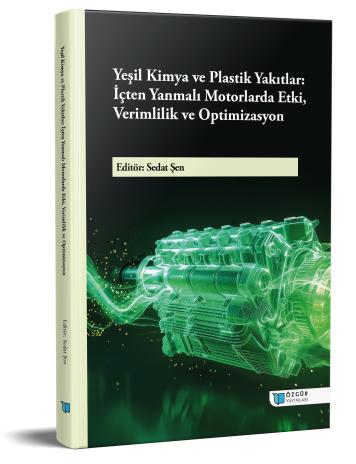
Energy and New Fuel Searches in Transportation: Testing and Optimization of Polyethylene Derived Fuels in Internal Combustion Engines
Chapter from the book:
Şen,
S.
(ed.)
2025.
Green Chemistry and Plastic-Derived Fuels: Impact, Efficiency, and Optimization in Internal Combustion Engines.
Synopsis
The two most critical global challenges of the 21st century are the increasing demand for sustainable energy sources and the deepening waste management crisis. High dependence on fossil fuels leads to various ecological issues, primarily climate change and environmental degradation. Concurrently, the massive accumulation of plastic waste, particularly from single-use plastics, poses a significant threat to ecosystems. At the intersection of these issues, innovative solutions aligned with green chemistry and circular economy principles are emerging. One of the most promising solutions is the chemical recycling of waste plastics into liquid fuels. This section comprehensively examines the use of liquid fuels derived from polyethylene waste through pyrolysis in internal combustion engines. The physicochemical properties of polyethylene-derived fuels, their effects on engine performance, and emission characteristics are analyzed in light of current literature, alongside optimization studies aimed at making their use more efficient and environmentally friendly. Studies indicate that, depending on the calorific value of these fuels, specific fuel consumption and brake thermal efficiency may exhibit positive or negative changes, with a notable potential to reduce soot emissions, while other harmful emissions may vary depending on the polyethylene type. Optimizing engine parameters is crucial to eliminating the disadvantages of using these fuels and ensuring efficient, economical, and environmentally friendly engine operation. Through optimization, fuel consumption can be minimized, effective efficiency maximized, and pollutant emissions reduced to a minimum.

